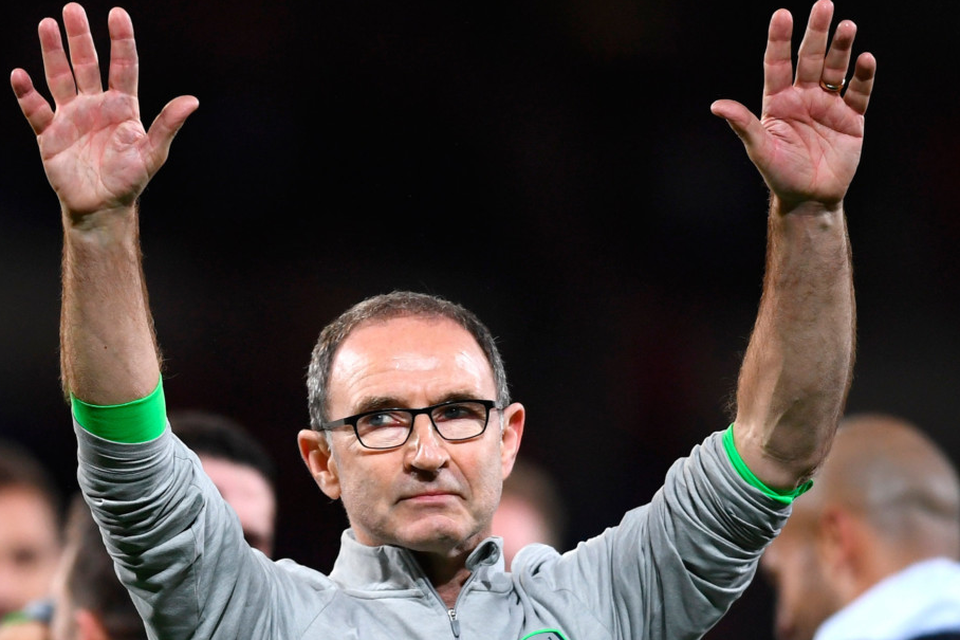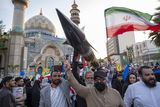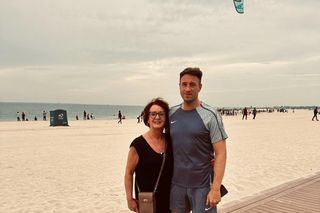Eamonn Sweeney - Denmark are no great shakes either
Hold The Back Page
‘Given how unlikely qualification seemed after the defeat by Serbia, I would have thought O’Neill’s critics might at least give him credit for masterminding the victory in Cardiff.’ Photo: Sportsfile
Ireland drawing Denmark in the World Cup play-offs has at least given us the chance to do some boasting. Now that we're bound for Copenhagen we can say it wouldn't have made any difference who we drew, that we wouldn't have feared anyone and that everyone would have been hoping not to draw Ireland.
But the truth is that when the choices were narrowed down to Italy and Denmark, we were mightily pleased to get the Scandinavians. In all honesty there's no denying they represent the very best option for us. They are a team on our own level, a team we have every chance of beating. We were damn lucky to get them.
Yet this stroke of fortune brings pressures of its own. Had we drawn Italy Ireland would have had nothing to lose. The argument would be that we were already in bonus territory and couldn't be expected to beat the Italians. A gallant defeat like the one we suffered against France in the European Championships would have sufficed to prevent any loss of caste.
The triumphalism and jubilation which followed the Cardiff victory would have been damped down in advance of any meeting with Italy. Whereas, now that Denmark are next in line, Russia seems within touching distance. You can almost see the spirit of national unity, the communal drunkenness, the empty streets at kick-off time, the nuns being helped across the street and the stories about guys selling their house so they can stay on for the knock-out stages. If all this gets snatched away by a team we should be able to beat, the popularity of O'Neill's team might well plummet precariously. As Smokey Robinson sang, a taste of honey's worse than none at all.
There is no shortage of knives being sharpened for the manager already. I was surprised by the begrudging nature of some of the stuff written in the aftermath of the Welsh game. Given how unlikely qualification seemed after the defeat by Serbia, I would have thought O'Neill's critics might at least give him credit for masterminding the victory in Cardiff.
The reluctance to do so suggested quite a few people preferred to wait in the long grass for the manager. With only a few weeks to go to the play-offs, why waste time praising the guy? There was a good chance that Ireland would draw Italy or Croatia and maybe ship a beating that would mean the previous match could be dismissed as a fluke victory which had more to do with Welsh weakness than Irish excellence.
This insistence that the result in Cardiff essentially means nothing and that Ireland remain an awful team with an awful manager is mean-spirited. I'm the furthest thing from an O'Neill loyalist. He has, in the past, taken serious exception to what I've written. But fair is fair. The victory in Wales represented a considerable achievement, you can't just go on as though it changes nothing.
A certain aura of self-congratulation surrounds the most persistent of O'Neill's detractors. They like to think that dismissing Ireland as worthless displays an unparalleled independence of spirit and courage on their part. They are apt to use the term, 'fans with typewriters' about those who disagree with them. The very antiquated nature of the term shows what a venerable cliché this is. Yet is being a crank with a computer any better?
As is often the case with Irish life, it's those at either extreme who make the most noise. It's easy to take the piss out of the man swinging a giant plastic hammer, singing 'We are green/we are whi'/we are fooky dynami' and insisting that questioning any facet of the Irish team's play is a form of national treachery. Yet is the guy who insists year after year that Wes Hoolahan is basically Lionel Messi and has the potential to make Ireland play like Barcelona any better?
Meanwhile, the rest of us try to take each game on its own merits, rather than merely treating it as an opportunity to grind old axes and have our ancient prejudices confirmed. It was ever thus for Irish managers I suppose. Wasn't Mick McCarthy criticised for not winning the 2002 World Cup? Yet it's impossible to escape the feeling that there are a few souls out there who'd be happy enough to see us come a cropper against Denmark so they could have the joy of saying, 'I told you so'.
We're not a great team, it's true. But neither are Denmark. They looked likely to miss out on qualification at one stage following a 1-0 home defeat by Montenegro in Copenhagen and with two games left sat dead level with that tiny remnant of Yugoslavia. A 1-0 win in Podgorica over the Montenegrins proved to be the crucial result of the group though Denmark's most eye-catching result in qualification was a 4-0 home victory over Poland in September. I think it's fair to say that's the kind of result we wouldn't be capable of. Then again so is a home defeat by Montenegro while dropping four points out of six against a weak Romanian side also shows how far away from the game's elite Denmark are these days.
While we were enjoying the European Championships in France last summer, the Danes were sitting at home, having been ousted for second place in Group I by Albania and losing a play-off to the Swedish team we finished ahead of in our group at the Euros. They've qualified for just two of the six last major championships, going out in the group stages both times. Their manager Age Hareide spent six years in charge of his native Norway during the noughties and couldn't get them to a major finals. Their position in world football is pretty similar to our own.
They do have Christian Eriksen and the Spurs man, like Robert Lewandowski and Gareth Bale, is one of those players able to put his less gifted team-mates up on his back and carry them over the line. Eight goals in ten group games from midfield tells an impressive story. Yet Eriksen is hardly unmarkable and Ireland coped pretty comfortably in Dublin with Bale, an even more dangerous player.
Apart from defender and team captain Simon Kjaer, who moved from Fenerbahce to Sevilla at the start of the season, most of Denmark's players toil in the same kind of prosaic surroundings as their Irish counterparts. Two of their first-choice defenders, Henrik Dalsgaard and Andreas Bjelland, play alongside our own John Egan at Brentford, currently 18th in the Championship.
Thomas Delaney, their top scorer in the qualifiers after Eriksen, is with a Werder Bremen side second from the bottom of the Bundesliga. Defender Jens Larsen and towering striker Andreas Cornelius are with Udinese and Atalanta respectively, teams in Serie A mid-table which, considering the relative merits of the leagues, isn't too different from being with Burnley. Winger Yusuf Poulsen has come up the divisions with Red Bull Leipzig in Germany but was on the bench for them when they beat Porto in the Champions League during the week.
Eriksen aside, Kasper Schmeichel is probably their best-known player and is a good, if hardly world-class, Premier League 'keeper. Then there's Nicklas Bendtner, back home with Copenhagen, maybe not as good as he once was or thinks he is, yet scarcely the comedy buffoon of tabloid reputation either. The big danger man, aside from Eriksen, may turn out to be young midfielder Pione Sisto, who led Manchester United a merry dance in the Europa League when at Midjtylland last year and is going well for Celta Vigo in La Liga.
These are good footballers yet they by and large inhabit the same kind of universe as ours do. It was not always like this for Denmark. Back in the 1980s they really were a kind of Scandinavian Holland, producing an extraordinary number of flair players for the top teams in Europe.
Yet the days of Preben Elkjaer, Allan Simonsen, Michael and Brian Laudrup, Morten Olsen, Soren Lerby, Frank Arnesen et al are gone in the same way that Irish teams packed with players from the top half-dozen English League teams are gone. The influx of South American and African players to the leading clubs has to a certain extent marginalised both countries. Both of our sights are set a little lower these days.
We have something to be grateful to the Danes for. Their 3-0 and 4-1 defeats of Eoin Hand's Ireland in the 1986 World Cup qualifying tournament meant that the FAI could no longer deny the parlous state of our international team. Cue our first foreign manager and the glories of the Charlton years. Our rivalry stretches back to the memorable 1014 match at Clontarf when Ireland were managed by Brian Boru, who like Eoin Hand cut his managerial teeth in Limerick. Hopefully no-one will tell the Danes how we buried the remains of their ancestors under those monumentally ugly office buildings at Wood Quay.
There is a feeling that we've been lucky to get the second leg at home as, given how little separates the teams, this could end up giving us 120 minutes in Dublin and 90 in Copenhagen. I'm not so sure about that. We did better away than at home against Serbia, Austria and Wales and I can see this pattern repeating itself. A 1-1 draw in Copenhagen followed by a 0-0 nailbiter in Dublin, anyone?
Unless of course we pick Wes from the start and 'take off the shackles'. Then it'll be 5-0 for Ireland home and away. No problem. Why can't O'Neill see that?
Join the Irish Independent WhatsApp channel
Stay up to date with all the latest news















